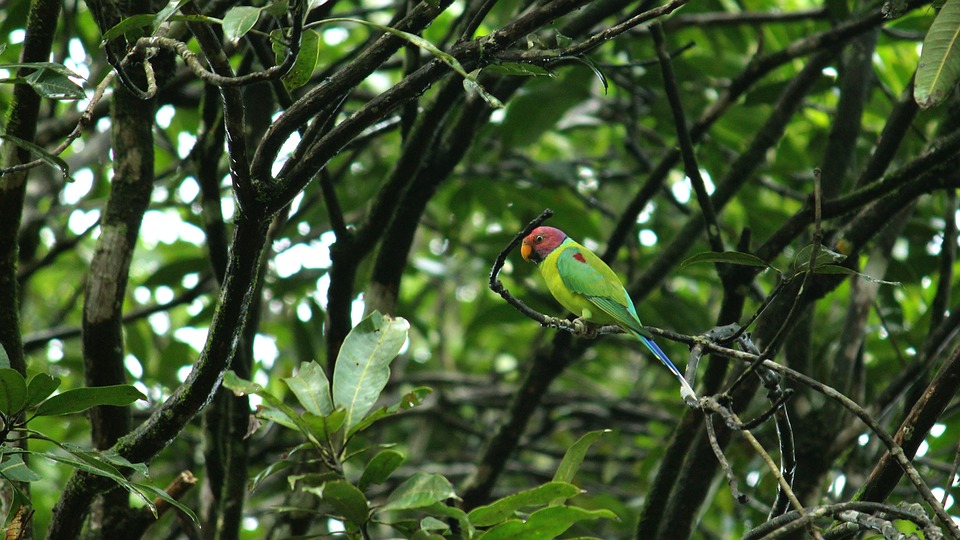Parrot owners are well aware of the importance of regular vet visits for their feathered friends. However, these visits can often be a source of stress for parrots. In this article, we will discuss how to recognize signs of stress in parrots during vet visits and provide reassurance to minimize their anxiety. We will also address some common concerns about parrot behavior during vet visits.
Parrots are highly intelligent and sensitive creatures, similar to humans. They can experience stress in various situations, including visits to the vet. Recognizing signs of stress in your parrot is crucial to addressing their needs and ensuring their well-being. By understanding these signs, you can provide the necessary reassurance and support during vet visits.
During vet visits, parrots may exhibit several signs indicating stress or anxiety. It is important to be observant and look out for these behavioral and physical cues. Some common signs of stress in parrots include feather picking or chewing, excessive vocalization or silence, fluffed feathers, rapid breathing or panting, dilated pupils, wing drooping or trembling, loss of appetite, and aggression or fearful behavior.
It is important to note that these signs can also indicate other health issues. Therefore, consulting with a veterinarian experienced in avian care is recommended to rule out any underlying medical conditions.
To help your parrot cope with vet visits, there are several strategies you can employ to provide reassurance and minimize stress. Pre-visit familiarization can involve taking your parrot to the vet clinic for short visits or exposing them to the sights, sounds, and smells associated with the clinic. Positive reinforcement and rewards can be given to your parrot before, during, and after the visit to associate the vet clinic with positive experiences. Gentle handling and a calm demeanor from both the owner and the vet can help alleviate stress. Bringing familiar objects and toys for your parrot can provide them with a sense of security. Creating a safe environment by ensuring a quiet and peaceful waiting area can also help reduce stress. Acclimating your parrot to their carrier or travel crate beforehand can make the transportation experience less stressful.
Now, let’s address some common concerns about parrot behavior during vet visits:
1. How can I prepare my parrot for a vet visit?
Before the visit, familiarize your parrot with the carrier, the car, and the vet clinic environment. Offer positive reinforcement and treats during the preparation process.
2. My parrot becomes aggressive during vet visits. What should I do?
If your parrot displays aggressive behavior, consult with an avian behaviorist or veterinarian experienced in parrot behavior to address the underlying cause of the aggression. They can provide guidance on training techniques to modify the behavior.
3. Should I bring my parrot’s favorite toy or blanket to the vet?
Bringing familiar objects can provide comfort and security to your parrot during the visit. However, consult with your vet beforehand to ensure that bringing these items won’t interfere with the examination or treatment.
4. Are there any calming techniques I can use to help my parrot during the visit?
Calming techniques such as gentle stroking, soft talking, and offering treats can help soothe your parrot during the visit. Playing calming music or using pheromone sprays designed for birds may also be beneficial.
5. What if my parrot refuses to eat during or after the vet visit?
It is common for parrots to lose their appetite temporarily due to stress. Offer their favorite foods and encourage eating once they are back in a familiar and comfortable environment. If the loss of appetite persists, consult with your vet.
6. My parrot gets scared in the carrier. How can I make the experience less stressful for them?
Gradually acclimate your parrot to the carrier by introducing it as a positive and familiar space. Offer treats and positive reinforcement while they are in the carrier. Use a carrier with plenty of ventilation and consider covering it partially or completely to create a sense of security.
7. Are there any specific signs I should look out for after the vet visit?
After the vet visit, monitor your parrot for any changes in behavior, appetite, or physical condition. If you notice any abnormalities or if your parrot’s condition worsens, contact your vet immediately.
By addressing these frequently asked questions, we aim to provide guidance and support to parrot owners, ensuring a smoother vet visit experience for both the parrot and the owner. In conclusion, understanding and recognizing signs of stress in your parrot during vet visits is crucial for their well-being. By following the strategies mentioned above and seeking advice from an avian veterinarian, you can help your parrot feel more at ease and reduce their stress during these necessary medical appointments. Remember, a calm and supportive environment is key to ensuring the best possible care for your beloved parrot.









